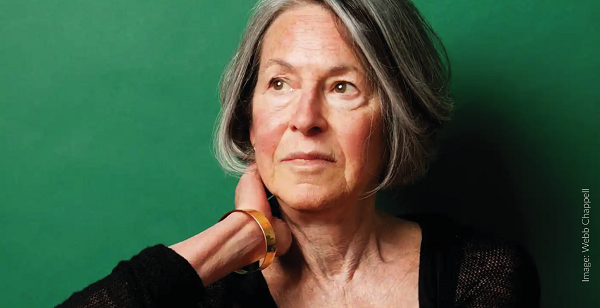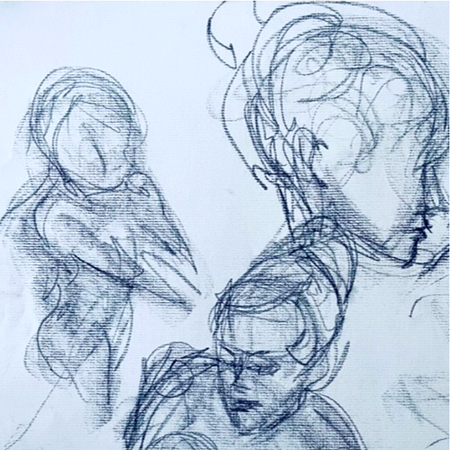THIS WEEK’S MUSE
LOUISE GLÜCK, POET

“We look at the world once, in childhood. The rest is memory.”
With roots in Ancient Greek traditions, Lyric poetry is one of the earliest forms of literature. It takes its name from the lyre that would provide music and melody to the story being told, creating atmosphere and context by which to draw an audience.
The confessional poets of the 20th century—such as Frank O’Hara, John Berryman, Sylvia Plath, and Anne Sexton—expressing personal emotions, typically in the first person, can be seen as a descendent of the Greek tradition. Themes around relationships, sex, domestic life, health, and personal experience were at their heart. They were challenging and new.
Louise Elisabeth Glück is an American poet who came to prominence through this literary tradition and is often described as writing in a lyrical style – confessional, autobiographical, and emotionally intense.
Born in New York City, Glück began writing poetry at an early age, partly as a support mechanism to help navigate growing mental and physical health issues. In 1963, she chose poetry courses in favor of higher education. “My emotional condition, my extreme rigidity of behavior and frantic dependence on ritual,” she wrote later, “made other forms of education impossible.”
Her first collection of poems, Firstborn—described by fellow poet Robert Hass as “hard, artful, and full of pain”—was published in 1968.
The personal and the painful themes persisted as success continued through the decades. The publication of Poems: 1962–2012, was described as “a literary event.” In 2020, Glück was awarded the Nobel Prize in Literature—one of a long list of honors—for her “unmistakable poetic voice that with austere beauty makes individual existence universal.”
Thematically, her poems seem to shine a light on trauma, desire, and nature. She has become known for her frank expression of sadness and isolation, and while themes and narratives can be broad in her work, the personal, confessional perspective often persists.
Scholars have also focused on her construction of poetic personas and the relationship between autobiography and classical mythology.
Lyric poetry depends on regular meter, based on a number of syllables or on stress, with two short syllables typically being exchangeable for one long syllable. In a song, this helps lyrics to “comfortably associate” with musical forms that follow a standard pattern of rhythm.
Although modern lyric poetry is mostly no longer set against a musical backdrop, these devices have persisted without the music.
Glück’s poems have shifted in process over the years. Early on, they were short, succinct lyrics across compact lines; later she “spread out” a little, expanding into connected book-length sequences.
Her work is challenging, revealing images and ideas that can be a difficult read. But perhaps her greatest skill is her power to pull people in and hold them, despite the challenges ahead for the reader.
The lyre may be long gone, but its effect is gently implied by her lyrical form, establishing a common ground through which she creates a shared journey – of story, of experience, and of humanity.
HAPPENING
Four Wednesdays, from May 10, 5:30–8pm

DYNAMIC DRAWING
With Susan Overstreet
Learn how to keep the “life” in the drawing!
Member: $140, Non-member: $160
